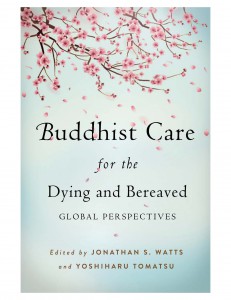On Death and Dying - a new section in June of '07
Felo de se (suicide) Zen Aluminati Santhara - the natural, traditional way
5-01-2019 - Nice article on Sally in Santa Rosa Press Democrat. First met her through Michael Phillips. Condolences to her husband Michael Eschenbach. Sally wrote a number of books, some with Michael Phillips and one with fellow Sonoma County creative icon Carol Rae named The Art of Dying: Honoring and Celebrating Life's Passages. She told her husband to leave her body alone for a day after she died. Farewell Sally. - (thanks Elin for alerting me to this) 7-14-14 - Assisted dying: Desmond Tutu signals support - BBC 7-11-14 - John Tarrant sent a note: Anne Aitken had a great thing about a bus stop when she was very old. Someone asked her what she thought about death. DC comment: I see us sometimes as in a cosmic game akin to musical chairs. One day there will be no chair for me. 7-08-14 - Just learned about Death Cafe. Article on local Death Cafe from Marin County (CA) Pacific Sun. - thanks Katrinka
which features Buddhist Care for the Dying and Bereaved in the Modern World: Global Perspectives Edited by Jonathan Watts and Yoshiharu Tomatsu (Wisdom Publication – Boston & the Jodo Shu Research Institute – Tokyo) Since its beginning, Buddhism has been intimately concerned with confronting and understanding death and dying. Indeed, the tradition emphasizes turning toward the realities of sickness, old age, and death - and using those very experiences to develop wisdom and liberating compassion. In recent decades, Buddhist chaplains and caregivers all over the world have been drawing on this tradition to contribute greatly to the development of modern palliative and hospice care in the secular world at large. Specifically Buddhist hospice programs have been further developing and applying traditional Buddhist practices of preparing for death, attending the dying, and comforting the bereaved. Buddhist Care for the Dying and Bereaved contains comprehensive overviews of the best of such initiatives, drawn from diverse Buddhist traditions, and written by practitioners who embody the best of contemporary Buddhist hospice care programs practiced all over the world today. Here's a great deal more on this book from Jonathan Watts' site The Vihara of Compassion - an article on this subject by Jonathan Watts in Contemporary Buddhist 9-11-13 - Katy Butler's The Ultimate End-of-Life Plan excerpt Adapted from Ms. Butler's book, "Knocking on Heaven's Door: The Path to a Better Way of Death," to be published Sept. 10 by Scribner. Compare with DC's mother Ahdel recent passing. 5-23-12 - The last taboo is denying us all a 'good death', warns Archbishop of York John Sentamu - from Briton's The Telegraph. - posted in the Death and Dyingsection. I remember once talking to Suzuki Roshi and Okusan, his wife, about dying or death, something in that area. Don't remember how we got into it. What I remember is them both making the point that they've found Americans to be quite open about discussing death, not so afraid of it, that Japanese aren't like that at all, are in general very afraid of death and don't want to discuss it. I was really surprised to hear them say that. I still think, really? - dc [posted in DC Brief Memories] 2-18-12 - Buddhist Contemplative Care Symposium on Palliative and End of Life Care 4-27-10 - Chimps Grieve Over Dead Relatives in Science mag of AAAS and Chimps grieve - in the Herald Sun - posted here in the Death and Dying section with implications for Santhara (fasting as death approaches) and Fauna Ahimsa(minimizing harm to animals) as well. 10-10-08 - Former Ganden Tripa Stays on 'Thukdam' for 18 Days - Thanks Cheryl Tibetan Buddhist Teachings on Death and Rebirth 5-11-08 - Preparing the mind for death - the Theravada Approach by Venerable Aggacitta Bhikkhu. - thanks to Ron Browning. 1-24-08 - Thanks to dear old friend Willem Malten, proprietor of Cloud Cliff Bakery-Cafe-Artspace in Santa Fe for this link to a video of poetry by Stephen Levine - on YouTube with more Levine videos there if you wish. 7-11-07 - Andrew Main writes about the photos of Thomas Kelly, one of which Maggie Kress was admiring when she had her fatal stroke, others on the Aghora of India who practice in graveyards and more. 6-22-07 - Jack Van Allen's Cremation Ceremony 6-22-07 - An Interested Reader suggests reading an account of Chogye Trichen Rinpoche's passing from Blazing Splendor and writes: Would you want to put anybody into the flames (or whatever) if the last vestige of awareness were not extinguished? I think of it like that - that being meditators we spend sometimes our whole lives cultivating the development of awareness or as some might say finding access to the dharmadhatu realm only to find out that it lingers in the physical body alot longer than we'd imagined. Gives me pause to stop and think a bit about what we're doing.. I think its the warmth at the heart chakra remaining so long for developed meditators that really has me wondering. When Chogyam Trungpa died they allowed his tukdam to go on as they did with the Karmapa. If you see the video "The Lion's Roar", (you can rent this at 'Open Secret' in San Rafael, CA) you can hear the Karmapa's western doctor (who married Chogyam's widow after Chogyam passed away, btw) talk about how there was warmth at the heart chakra for days after his supposed demise and that it just wasn't possible from a western medical perspective. Plus if you read the article about Chogye Trichen, they talk about how the body had no signs of decay or smell for the entire time of his tukdam - 16 days!- I don't know about you but that says something to me. Memorial Index was moved from here |
| Felo de se Home Santhara home page Zen Aluminati What's New |
